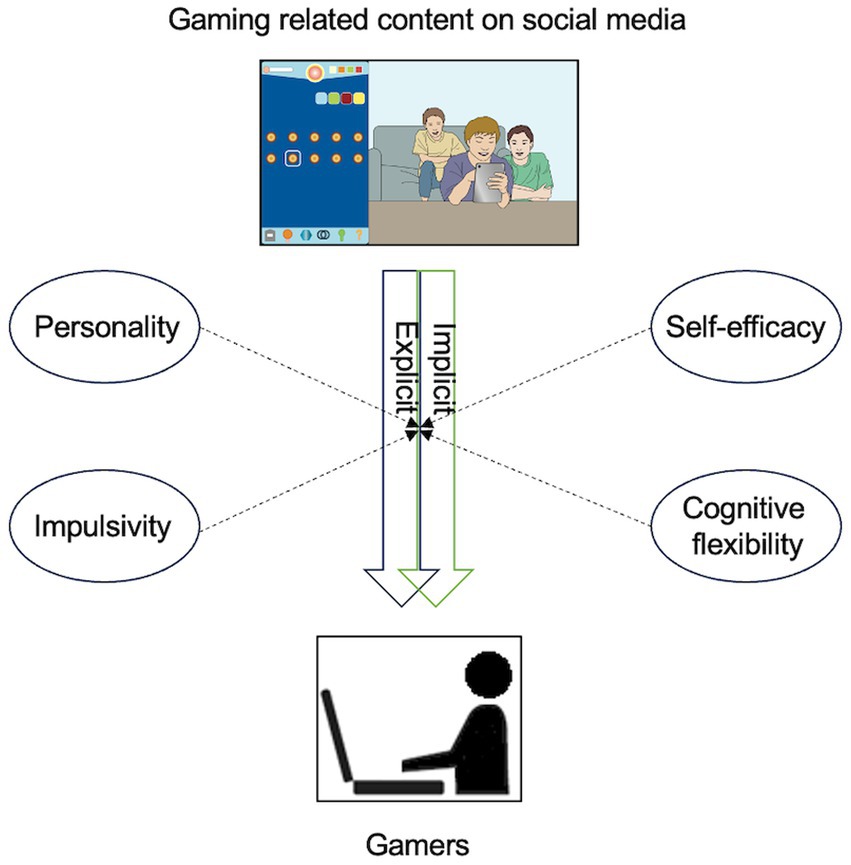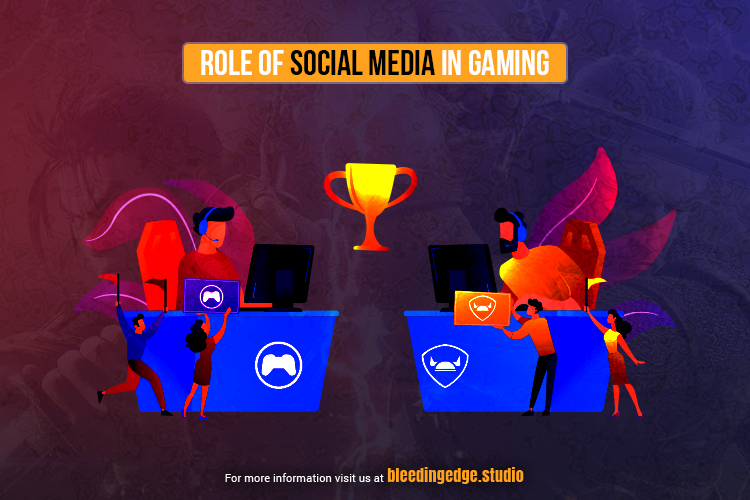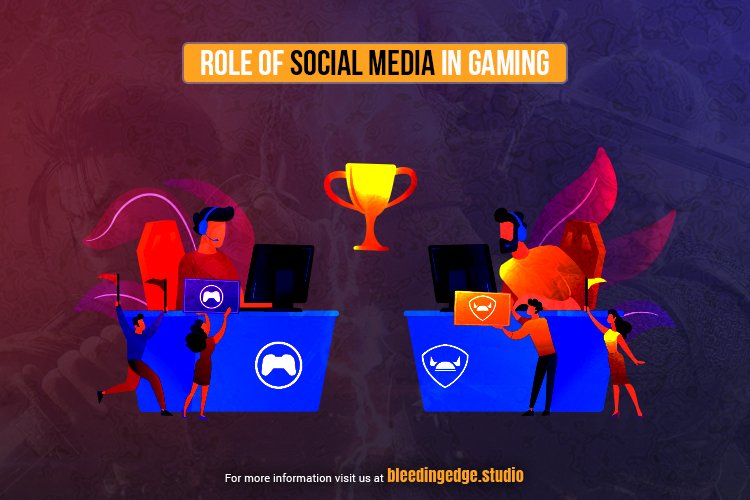
Introduction
Evolution of Gaming Culture
The world of gaming has undergone a remarkable transformation. From the early days of arcade machines to the intricate storytelling of contemporary titles, gaming culture has grown beyond mere entertainment. Gamers have transitioned from solitary players to active participants in vibrant communities, forging bonds through shared experiences. This evolution plays a pivotal role in shaping social dynamics, as more people connect over their love for games.
Rise of Social Media in Gaming
Simultaneously, the rise of social media has revolutionized the way gamers interact and share their passion. Platforms like Twitch, YouTube, Twitter, and Discord are not just conduits for communication; they serve as the heartbeat of the gaming community.
- Key Aspects of Social Media in Gaming:
- Live Streaming: Gamers can broadcast their gameplay in real-time, creating a shared experience.
- Shareable Content: Highlights and moments can be instantly shared, attracting viewers and fostering engagement.
With these tools at their disposal, gamers are now more connected than ever, paving the way for a new era in gaming culture.

Influence of Social Media on Gaming Culture
Community Building and Engagement
With social media at its core, gaming has transformed into a communal experience. Online forums, groups, and live streams create a space where gamers can gather, share strategies, and form friendships. This shift makes gaming more than a pastime; it’s now a shared journey.
- Benefits of Community Engagement:
- Shared Experiences: Players can connect over victories and defeats, fostering camaraderie.
- Event Organization: Social media helps in organizing tournaments and game nights, enhancing local and global connections.
Impact on Gaming Content Creation
Content creation in gaming has flourished thanks to the readily available platforms. Streamers and YouTubers provide unique content that not only entertains but educates.
- Types of Content:
- Tutorials: Players can learn new techniques and strategies.
- Walkthroughs: Detailed guides help navigate complex games.
Virtual Economies and In-Game Purchases
Furthermore, social media has given rise to virtual economies. Gamers share tips on in-game purchases, making the experience more strategic.
- Key Aspects:
- Microtransactions: Players engage with virtual currencies and exclusive content.
- Trade and Bargain: Social platforms serve as marketplaces for trading in-game items.
Ultimately, social media has become the foundation upon which gaming culture thrives, fostering collaboration, creativity, and economic opportunities.

Social Media Platforms in Gaming
Twitch and Live Streaming
Twitch has revolutionized the way gamers engage with their audience. Since its inception, it has become the go-to platform for live streaming, allowing gamers to showcase their skills in real-time. As I tuned into a charity stream once, I was amazed by how communities rallied together to support their favorite streamers, all while enjoying gameplay.
- Key Features:
- Interactive Chat: Viewers can communicate with streamers instantly.
- Subscriptions and Donations: Fans contribute, fostering a sense of community support.
YouTube and Gaming Content
Similarly, YouTube has become a powerhouse for gaming content. From Let’s Plays to review videos, it offers something for everyone.
- Popular Content Types:
- Game Trailers: Exciting previews hype up upcoming releases.
- Walkthrough Guides: Gamers share expert tips to enhance gameplay experience.
Twitter, Instagram, and Facebook Integration
Platforms like Twitter, Instagram, and Facebook add another layer of connectivity. They function as a pulse on the gaming landscape, allowing developers and players to interact effortlessly.
- Example Uses:
- Developer Updates: Quick posts keep the community informed about game patches.
- Community Memes: Fun, shareable content strengthens community bonds.
These platforms collectively shape the gaming world, enriching the experience and allowing for deeper connections among gamers.

Social Media Trends Shaping Gaming Culture
Influencer Marketing
One of the most significant shifts in gaming culture has been the rise of influencer marketing. Many gamers follow their favorite streamers and content creators, often purchasing games or merchandise based on their recommendations. My friend discovered a hidden gem of a game thanks to a Twitch streamer’s rave review, proving the power of influencers in shaping consumer choices.
- Key Aspects of Influencer Marketing:
- Authentic Recommendations: Followers trust influencers, leading to genuine engagement.
- Brand Collaborations: Many games team up with influencers to boost visibility.
Esports and Competitive Gaming
In addition, the explosion of esports has transformed gaming into a spectator sport. Events like the League of Legends World Championship attract millions of viewers, showcasing incredible talent and teamwork.
- Impact of Esports:
- Career Opportunities: Players can now pursue gaming professionally.
- Diverse Viewership: These events draw in fans from all walks of life.
Memes and Viral Trends
Finally, memes and viral trends reinforce gaming culture in a fun and accessible way. Funny images and clips circulate across platforms, offering a light-hearted commentary on gaming experiences.
- Examples of Memes:
- Game Fails: Players share their hilarious misadventures in-game.
- In-Game References: Meme culture often references iconic moments from popular games.
As these trends continue to evolve, they significantly influence how gamers connect, compete, and communicate within their communities.
)
Positive Effects of Social Media on Gaming Community
Global Connectivity and Collaboration
One of the most remarkable positive effects of social media in gaming is its ability to foster global connectivity. Gamers from different continents can connect instantly, forming teams for multiplayer experiences. I remember coordinating a gaming session with friends from different countries—an experience that felt like a digital family reunion.
- Key Benefits:
- Cross-Cultural Collaboration: Players learn from each other’s strategies and styles.
- Event Participation: Global competitions and online tournaments create a shared sense of achievement.
Diversity and Inclusivity in Gaming
Moreover, social media amplifies voices from diverse backgrounds, promoting inclusivity in gaming culture.
- Ways Inclusivity Emerges:
- Representation: Developers are increasingly recognizing the importance of diverse characters and storylines.
- Community Support: Groups advocate for marginalized players, ensuring safe spaces for all.
Supportive Networks and Communities
Lastly, social media is a breeding ground for supportive networks. Friends and strangers alike offer encouragement and advice, nurturing a positive environment.
- Support Mechanisms:
- Mental Health Awareness: Gamers openly discuss challenges, breaking down stigmas.
- Skill Development: Players share tips and resources to help each other improve.
These elements contribute to a vibrant and welcoming gaming community, showcasing how social media positively impacts the gaming experience.

Negative Impacts of Social Media on Gaming Culture
Cyberbullying and Toxic Behavior
Unfortunately, the dark side of social media in gaming manifests through cyberbullying and toxic behavior. Many players have faced harassment, making the gaming experience daunting. I recall a friend who had to leave a game because constant taunts and insults took away their enjoyment, illustrating how detrimental these behaviors can be.
- Key Issues:
- Anonymity: Hiding behind screens emboldens toxic individuals.
- Impact on Mental Health: Victims often experience stress and anxiety, affecting their overall well-being.
Privacy and Security Concerns
Additionally, privacy and security have become pressing concerns. With personal information so readily available online, many gamers are vulnerable to data breaches and hacking attempts.
- Common Risks:
- Phishing Scams: Gamers can fall prey to deceptive messages and downloads.
- Account Theft: Hacked accounts can result in the loss of personal data and in-game assets.
Spread of Misinformation and Fake News
Lastly, social media can be a breeding ground for misinformation. False claims about game releases or features can mislead players and stir unnecessary panic.
- Consequences of Misinformation:
- Hyped Expectations: Players may get excited over rumors that lead to disappointment.
- Distrust in Developers: Constant false information can tarnish the reputation of legitimate companies.
These negative impacts highlight the need for a cautious approach to social media interactions within the gaming community, emphasizing the importance of fostering a healthier online environment.

Future Outlook: Social Media and Gaming
Emerging Technologies and Innovations
Looking ahead, the fusion of social media and gaming will be propelled by emerging technologies and innovations. Augmented reality (AR) and virtual reality (VR) are set to revolutionize how players interact in social environments. I remember trying out a VR game where I could team up with friends in a digital landscape, making it feel like a shared adventure.
- Innovative Trends:
- Enhanced Reality Experiences: Players can engage in more immersive, interactive environments.
- AI-Driven Content: Personalized gaming experiences tailored to individual player preferences will enhance engagement.
Changing Dynamics of Gaming Community
As these technologies evolve, so too will the dynamics of the gaming community. The lines between casual and competitive play will blur, allowing for more inclusive participation.
- Impact of Change:
- Increased Collaboration: Communities can form around initiatives like charity streams, leveraging technology for good.
- New Forms of Play: Players will engage in novel formats, encouraging diverse experiences.
Ethical Considerations and Responsible Use
However, with these advancements comes the need for ethical considerations and responsible use. As social media continues to shape gaming, it is essential to establish guidelines for fair play and community interaction.
- Key Focus Areas:
- Privacy Protections: Players must be educated on safeguarding their personal information.
- Combatting Toxicity: Communities should advocate for constructive dialogue and inclusivity.
By embracing these advancements while recognizing potential challenges, the future of social media in gaming can create a vibrant and healthy culture for all players.

